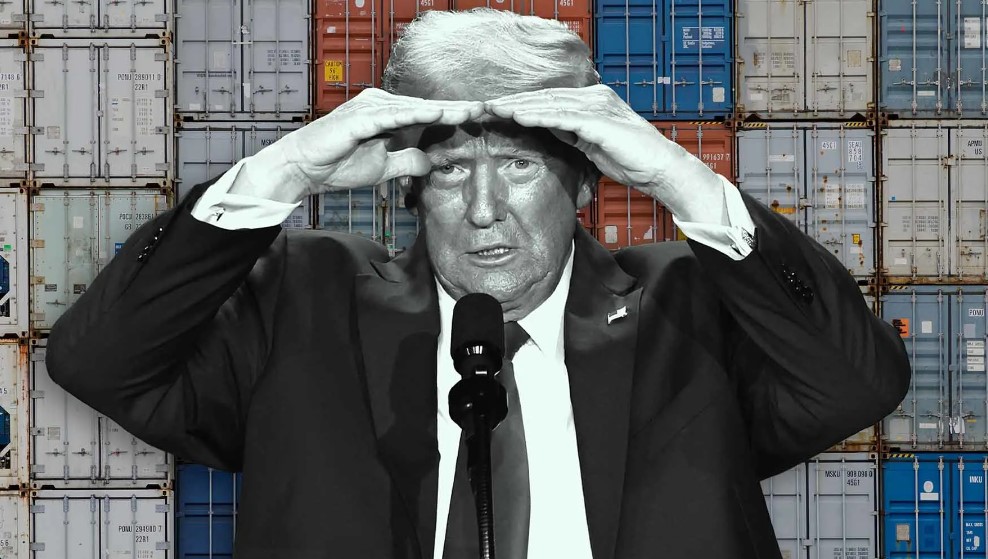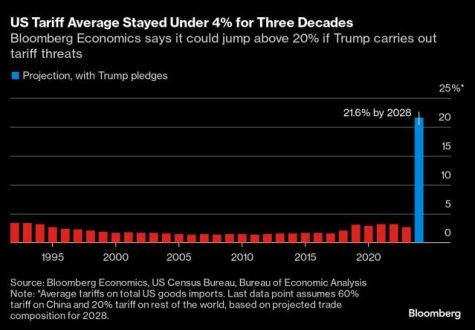
Liam Dillbeck | News Editor
November 6, 2024
The 2024 election has just about wrapped up and it seems Donald J. Trump is going to be our next president. I realize this brings some people joy and others dismay, but instead of reflecting on Trump himself, I believe it will be more beneficial to prepare for his economy. Trump made his economic campaign pretty clear: tax cuts and tariffs. While tax cuts at least sound appealing, it is tariffs that should make you raise an eyebrow.
There seems to be a lot of confusion on what a tariff is and who is paying for it directly and indirectly. To start, a tariff is a government tax on imported or exported goods from one country to another. In this case, Trump is suggesting we implement an import tax on everything. Specifically, he threatens a sixty percent tax on all goods imported from China, and twenty percent on everything else. Now, a common misconception is that the U.S. would be profiting even more off this bill because, as senior Gavin Unger argues, “We’re making our economic competition pay even more!” The tariffs are not actually paid for by the foreign countries, and the intention is to progress America in a different way.
Trump’s intentions are actually quite generously directed toward America’s domestic market instead. Since it is the American distributors who are paying for these tariffs, this exaggerated increase will discourage the foreign market for as long as they are in play. Domestic manufacturers are more likely to develop during this time because distributors will refuse to pay insanely high taxes, forcing less foreign competition.

I did say his intentions were generous, but the execution will be quite the opposite. These domestic manufacturers are not guaranteed to appear anytime soon. Establishing a big enough operation could take years to outmatch foreign competition. Not to mention, there is a reason we import certain goods from different countries in the first place. Some products are too expensive for us to make, or a different country can make it more efficiently. That is why trade is crucial to our economy. Since we can not switch from foreign to domestic manufacturers immediately, distributors will be forced to pay these tariffs for however long the bill lasts. The problem is that these billionaire distributors are not actually paying for the tariffs, you are. Since they have to spend more money to receive the goods, the distributors will simply increase the price they are selling the goods. “So will my clothes be more expensive?” asks senior Owen Giacobello. The answer is yes, we can expect the prices of everyday goods to increase if Trump successfully implements these tariffs.

Leave a Reply